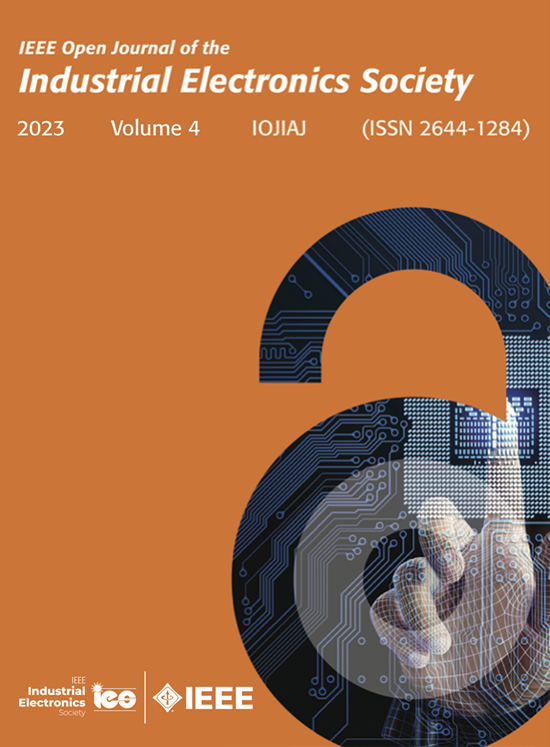机器学习在制造业中的应用--挑战、趋势和未来方向
IF 5.2
Q1 ENGINEERING, ELECTRICAL & ELECTRONIC
IEEE Open Journal of the Industrial Electronics Society
Pub Date : 2024-07-19
DOI:10.1109/OJIES.2024.3431240
引用次数: 0
摘要
工业 4.0(I4.0)的出现极大地改变了制造业的面貌,引入了互联、动态和数据丰富的环境。本文重点关注工业机器学习(I-ML)在这些不断发展的制造业环境中的应用,探讨其整合所面临的挑战和未来前景。按照系统性综述和荟萃分析(PRISMA)指南的首选报告项目进行的系统性文献综述构成了我们分析的基础,描述了机器学习(ML)在现代制造业中的作用、当前挑战和未来趋势。这项研究深入探讨了 I-ML 在各种制造场景中的影响,包括预测性维护、异常检测和质量控制,对实际应用进行了全面概述,并确定了相关的新兴技术和趋势。我们还探讨了工业应用中对可持续、可重现和可靠性能的迫切需求,并探索了克服行业中采用智能物流障碍的策略。我们对未来的研究方向提出了建议,旨在弥合 ML 进步与其在工业环境中的实际可扩展实施之间的差距,为该领域的未来研究铺平道路。最后,我们旨在为制造业正在进行的数字化转型确定挑战和未来研究方向做出贡献,为如何在 I4.0 时代有效利用 ML 提供见解。本文章由计算机程序翻译,如有差异,请以英文原文为准。
Machine Learning Applications in Manufacturing—Challenges, Trends, and Future Directions
The emergence of Industry 4.0 (I4.0) has significantly transformed manufacturing landscapes, introducing interconnected, dynamic, and data-rich environments. This article focuses on the application of industrial machine learning (I-ML) within these evolving manufacturing contexts, exploring both the challenges and future prospects of its integration. A systematic literature review, following the preferred reporting items for systematic reviews and meta-analyzes (PRISMA) guidelines, forms the foundation of our analysis, characterizing the role of machine learning (ML) in modern manufacturing, its current challenges, and future trends. This research delves into the implications of I-ML in various manufacturing scenarios, including predictive maintenance, anomaly detection, and quality control, providing a comprehensive overview of practical applications along with an identification of related emerging technologies and trends. We also address the critical need for sustainable, reproducible, and reliable performance in industrial applications and explore strategies for overcoming barriers to ML adoption in the industry. Recommendations for future research directions are provided, aiming to bridge the gap between ML advancements and their practical, scalable implementation in industrial settings, paving the way to future research in the field. Lastly, we aim to contribute to the identification of challenges and future research directions for the ongoing digital transformation of manufacturing industries, offering insights into how ML can be effectively leveraged in the era of I4.0.
求助全文
通过发布文献求助,成功后即可免费获取论文全文。
去求助
来源期刊

IEEE Open Journal of the Industrial Electronics Society
ENGINEERING, ELECTRICAL & ELECTRONIC-
CiteScore
10.80
自引率
2.40%
发文量
33
审稿时长
12 weeks
期刊介绍:
The IEEE Open Journal of the Industrial Electronics Society is dedicated to advancing information-intensive, knowledge-based automation, and digitalization, aiming to enhance various industrial and infrastructural ecosystems including energy, mobility, health, and home/building infrastructure. Encompassing a range of techniques leveraging data and information acquisition, analysis, manipulation, and distribution, the journal strives to achieve greater flexibility, efficiency, effectiveness, reliability, and security within digitalized and networked environments.
Our scope provides a platform for discourse and dissemination of the latest developments in numerous research and innovation areas. These include electrical components and systems, smart grids, industrial cyber-physical systems, motion control, robotics and mechatronics, sensors and actuators, factory and building communication and automation, industrial digitalization, flexible and reconfigurable manufacturing, assistant systems, industrial applications of artificial intelligence and data science, as well as the implementation of machine learning, artificial neural networks, and fuzzy logic. Additionally, we explore human factors in digitalized and networked ecosystems. Join us in exploring and shaping the future of industrial electronics and digitalization.
 求助内容:
求助内容: 应助结果提醒方式:
应助结果提醒方式:


